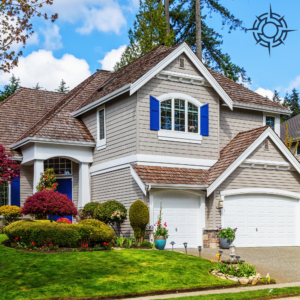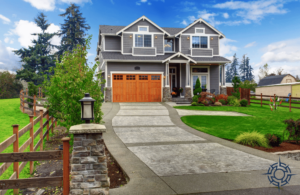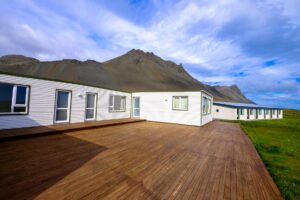Introduction to Large Glass Doors
Large glass doors, encompassing both French doors and sliding glass doors, are more than just entry points; they are design statements that merge indoor and outdoor spaces, bringing in natural light and enhancing the visual appeal of your home. These doors offer a seamless transition between your home’s interior and your garden, deck, or patio, creating an open, airy environment that feels both expansive and inviting.
French doors, characterized by their double door setup and traditional styling, open on hinges and typically feature multiple panes of glass. They add an elegant touch to any home, complementing classic and contemporary designs alike.
Sliding glass doors, on the other hand, operate by sliding along a track, offering a modern look with clean lines and maximizing space efficiency. Their large glass panels provide unobstructed views of the outdoors, making them ideal for homes with scenic landscapes.
The value of installing such doors extends beyond aesthetics. They can significantly improve the functionality of a space, allowing for better ventilation and making small rooms appear larger. Moreover, the influx of natural light can enhance your home’s energy efficiency by reducing the need for artificial lighting during the day.
Whether you’re renovating your home or building a new one, choosing the right type of large glass door can transform your living space, making it more welcoming and connected to the natural world outside. In the following sections, we’ll delve into the specifics of French doors versus sliding glass doors, helping you make an informed decision that suits your home’s layout, design, and your personal preferences.
Understanding French Doors
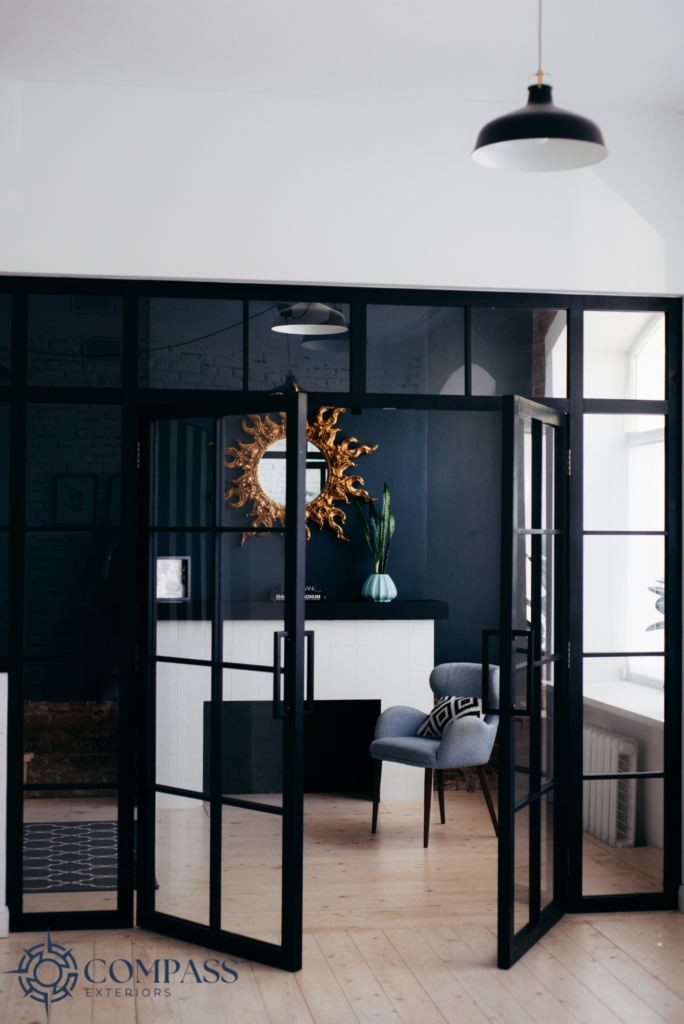
French doors are a hallmark of elegance and architectural beauty, offering both aesthetic and practical benefits to any home. Defined by their dual-door configuration and classic design, French doors are distinguished by their glass paneled doors, which may extend from top to bottom, providing a full view of the outdoors while allowing ample natural light to flood the interior spaces.
Architectural Styles and Home Layouts
French doors excel in a variety of architectural styles, from traditional to contemporary, adding a touch of sophistication and timeless appeal. They are particularly well-suited to classic, Victorian, or country-style homes, where their elegant design complements the architectural details. In modern homes, French doors can offer a contrasting classic element or be designed with a simpler, more streamlined look to fit contemporary aesthetics.
The versatility of French doors makes them ideal for various home layouts. They are perfect for opening onto a patio or garden, creating a seamless flow between indoor and outdoor living spaces. In interior spaces, French doors can serve as a grand entrance to a dining room, home office, or master bedroom, enhancing the openness and connectivity between rooms.
Advantages of Installing French Doors
The installation of French doors comes with several key advantages:
- Design and Aesthetic Appeal: French doors add an element of sophistication to your home, with their classic design enhancing the overall look and feel of your space.
- Natural Light and Visibility: The extensive use of glass in French doors allows for abundant natural light, making rooms feel brighter and more spacious. The clear view of the outdoors also helps in creating a connection with nature, which can be mentally soothing.
- Accessibility and Ventilation: With both doors open, French doors offer superior ventilation, allowing fresh air to circulate through your home. They also provide easy access to outdoor areas, making them ideal for entertaining or enjoying a quiet moment outside.
Potential Issues and Considerations
While French doors have many benefits, there are a few considerations homeowners should keep in mind:
- Space Requirements: Unlike sliding doors, French doors require space to swing open, which may not be ideal for smaller rooms or tight spaces.
- Security and Energy Efficiency: While advancements have been made in locking mechanisms and energy-efficient glass, it’s essential to choose high-quality French doors to ensure security and minimize heat loss.
Choosing French doors for your home involves balancing their timeless beauty and functional benefits with your specific space and style requirements. In the next section, we’ll explore sliding glass doors as an alternative, highlighting their unique advantages and suitability for different situations.
Exploring Sliding Glass Doors
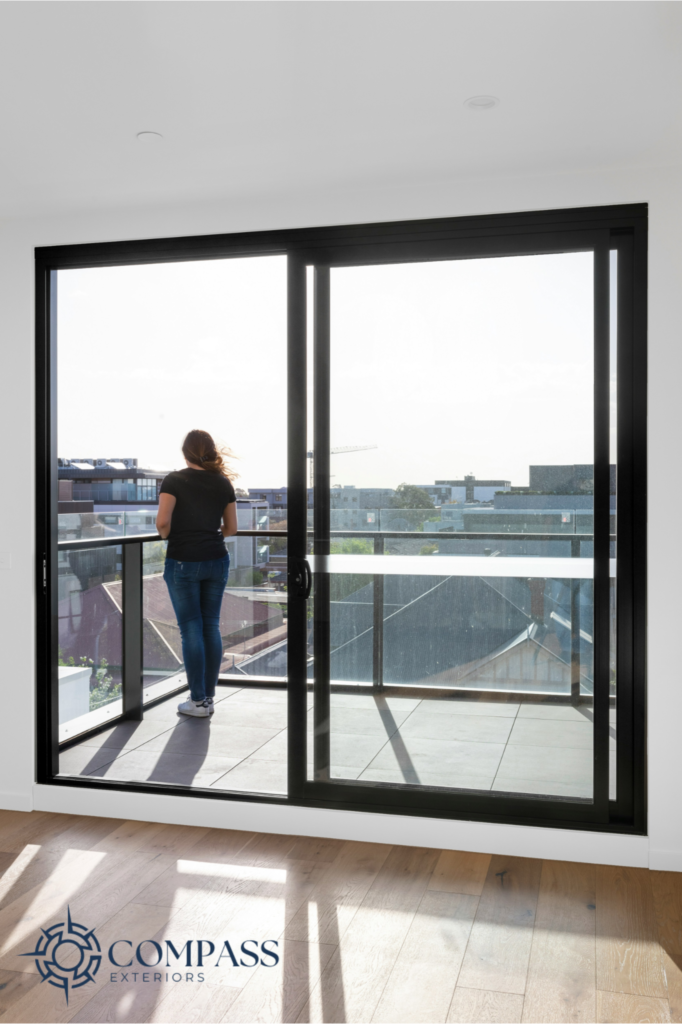
Sliding glass doors represent a blend of functionality and modern design, offering a sleek and practical solution for homeowners looking to maximize their space while maintaining a strong connection with the outdoors. Characterized by their horizontal operation, sliding along a track, these doors are an excellent choice for contemporary homes, where space and light are at a premium.
Functionality and Design
The primary advantage of sliding glass doors lies in their space-saving design. Unlike French doors that require space to swing open, sliding doors operate within their own plane, making them ideal for rooms with limited exterior space or where furniture placement is a concern. This functionality does not come at the expense of aesthetics; modern sliding doors come in a variety of designs and finishes, allowing them to complement or even enhance the architectural style of a home.
Ideal Homes and Layouts
Sliding glass doors are particularly well-suited to modern and minimalist homes, where their clean lines and large glass panels can create a seamless transition between indoor and outdoor spaces. They are perfect for opening onto patios, decks, and balconies, providing unobstructed views of the garden or landscape. Moreover, their design is adaptable to various room layouts, whether it’s a living room needing easy access to the backyard or a bedroom with a private balcony.
Advantages of Sliding Glass Doors
- Maximized Space: By sliding open rather than swinging, these doors conserve valuable floor space, making them suitable for both small apartments and larger homes.
- Uninterrupted Views: The expansive glass panels of sliding doors offer panoramic views of the outdoors, bringing in natural beauty and enhancing the room’s ambiance.
- Energy Efficiency: Many modern sliding glass doors are designed with energy efficiency in mind, featuring double glazing and improved sealing to reduce heat loss and gain.
Potential Drawbacks
While sliding glass doors offer numerous benefits, there are considerations to keep in mind:
- Track Maintenance: The tracks of sliding doors require regular cleaning to ensure smooth operation and prevent jamming.
- Security: Historically, sliding doors were considered less secure than their French counterparts, but advancements in locking mechanisms have significantly improved their security.
Choosing sliding glass doors means embracing a modern aesthetic, optimizing space, and enhancing your home’s connection to the outdoors. With careful consideration of design and security features, sliding glass doors can be a valuable addition to any home.
Comparative Analysis: Price, Energy Efficiency, and Durability
Both French doors and sliding glass doors offer unique benefits, but they also come with different drawbacks. When considering large glass doors for your home, three critical factors come into play:
- Price
- Energy efficiency
- Durability
Price Comparison
The cost to install French doors or sliding glass doors varies based on materials, size, custom features, and installation complexities. Generally, French doors can be more expensive due to their intricate design and the craftsmanship required, especially if opting for custom designs or high-end materials. Sliding glass doors may offer a more cost-effective solution, with simpler mechanisms and potentially lower installation costs. However, high-quality sliding doors with advanced features like energy-efficient glass or impact resistance can also come with a higher price tag.
Energy Efficiency
Energy efficiency is a crucial consideration for homeowners looking to reduce energy bills and minimize their environmental footprint. Modern French and sliding glass doors often feature energy-efficient technologies such as double or triple glazing, low-E coatings, and thermal breaks. While both door types can be designed for high energy efficiency, sliding glass doors may have a slight edge due to their continuous seal along the track, which can minimize air leakage. However, the difference can be negligible with proper installation and quality materials for both door types.
Durability and Maintenance
Durability and ease of maintenance are important factors in the long-term satisfaction with your doors. French doors, with their hinged design, may require adjustments over time to ensure they close properly, especially in homes that settle or shift. Sliding glass doors rely on a track system that needs to remain clean and free of debris for smooth operation. Both types can offer excellent longevity when made from high-quality materials like fiberglass, aluminum, or vinyl, and with proper care and maintenance.
In terms of security, advancements have made both French and sliding glass doors more secure, with options for reinforced glass, multi-point locking systems, and additional security bars or sensors.
Choosing between French and sliding glass doors involves balancing these factors with your aesthetic preferences, home layout, and budget. By considering the long-term implications of price, energy efficiency, and durability, homeowners can make an informed decision that aligns with their needs and lifestyle.
Conversion Between Door Types
For homeowners contemplating a change in their home’s design or functionality, converting between French doors and sliding glass doors is a viable option. This section explores the feasibility, considerations, and steps involved in such a conversion, whether you’re looking to bring a classic touch to your home by installing French doors or maximize space with sliding glass doors.
Replacing a Sliding Glass Door with a French Door
Converting from sliding glass to French doors can dramatically alter the look and feel of a room, introducing a classic or contemporary aesthetic based on the door style chosen. This conversion typically involves removing the existing sliding door frame and track, then preparing the opening for a hinged door installation. It’s essential to consider the door swing space and ensure the structural integrity of the wall can support the new doors. Homeowners should consult with professionals to assess any potential impact on the home’s structure and to ensure a seamless installation process.
Replacing a French Door with Sliding Glass Doors
Converting from French doors to sliding glass doors is often sought for its space-saving benefits and modern appeal. This process involves removing the French doors and their frame, then preparing the aperture for the sliding door system. It’s crucial to ensure that the new sliding doors fit the existing opening or to adjust the opening accordingly, which might involve structural modifications. Professional installation is recommended to address any challenges related to alignment, sealing, and ensuring smooth operation.
Considerations for Conversion
- Structural Requirements: Both conversions require careful consideration of the existing structure and may require reinforcement or modifications.
- Cost: Conversion costs can vary widely based on the complexity of the installation, materials, and labor required.
- Permits: Some regions may require building permits for door conversions, so it’s important to check local regulations.
Converting between door types allows homeowners to adapt their space to changing needs or design preferences. However, it’s a decision that involves weighing the aesthetic, functional, and financial implications carefully. Consulting with a professional, like Compass Exteriors, can provide valuable guidance and ensure that the conversion enhances your home’s value and appeal.
Choosing the Right Doors with Compass Exteriors
When it comes to enhancing your home with large glass doors, both French doors and sliding glass doors offer distinct advantages that can transform your living space. French doors, with their timeless elegance, bring a classic aesthetic and openness to any home, providing ample natural light and easy access to outdoor spaces. They’re ideal for traditional and contemporary homes alike, offering a sophisticated touch to your property. On the other hand, sliding glass doors offer a modern, space-saving solution that maximizes views and brings the outdoors in, making them perfect for homes with limited space or those seeking a contemporary look.
Each option comes with its own set of considerations, including cost, energy efficiency, durability, and specific use cases within your home’s layout. Converting between door types is also a possibility, allowing homeowners the flexibility to change their space as their needs or tastes evolve. Whether you’re drawn to the classic charm of French doors or the sleek functionality of sliding glass doors, the choice ultimately depends on your personal style, home’s architecture, and lifestyle needs.
Compass Exteriors stands out as the premier partner for homeowners looking to install or replace their sliding glass or French doors. Our expertise in a wide range of home construction and renovation projects, combined with a commitment to quality and customer satisfaction, makes us the ideal choice for your next project. We understand the importance of blending aesthetic appeal with practicality and are dedicated to helping you make the best choice for your home.
If you’re considering the installation or replacement of French or sliding glass doors, the next step is to schedule a consultation with Compass Exteriors. Our team will work with you to assess your needs, provide expert recommendations, and ensure a seamless installation process that enhances your home’s beauty and functionality. With Compass Exteriors, you can trust that your home renovation project is in good hands, ensuring a result that you’ll love for years to come.


